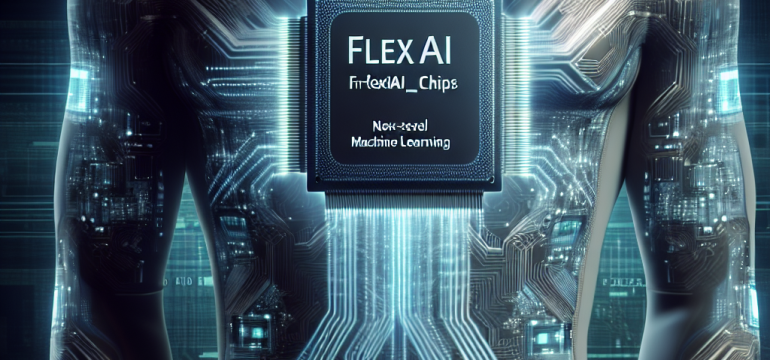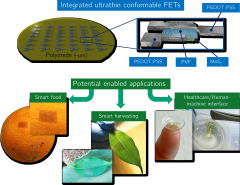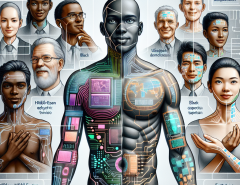FlexAI
Elevator Pitch: FlexAI is revolutionizing the electronics industry with its paper-thin, energy-saving machine learning chips that can be printed directly onto virtually any surface. Imagine smart clothing that can track and analyze your body’s needs, IoT devices with more brain than brawn, and interactive surfaces everywhere—all made possible by FlexAI’s groundbreaking technology.
Concept
Developing energy-efficient, space-saving machine learning hardware using printed electronics technology that leverages approximate computing for low-cost, flexible integration into everyday objects.
Objective
To create a new generation of machine learning hardware that is cost-effective, power-efficient and suitable for integration into flexible environments, expanding the reach of AI into various new sectors.
Solution
Adopt the research findings to manufacture ML circuits using printed electronics with a genetic-based, approximate, hardware-aware training method, optimizing for area and power consumption while accepting a minimal trade-off in accuracy.
Revenue Model
Sales of flexible ML hardware components to product manufacturers, licensing of technology, and provision of custom development services for specific industry applications.
Target Market
Electronics manufacturers focusing on wearable tech, smart textiles, IoT devices, and firms interested in integrating ML capabilities into flexible or unconventional surfaces.
Expansion Plan
Initially focus on niche markets that require flexible, low-power ML solutions and then expand to broader applications as the technology matures and production scales.
Potential Challenges
Technical issues in maintaining product reliability and performance consistency; scaling up production; market acceptance given the accuracy trade-off.
Customer Problem
The need for machine learning capabilities in environments where traditional silicon-based hardware is impractical due to space constraints, rigidity, or power consumption limitations.
Regulatory and Ethical Issues
Compliance with electronics disposal regulations and ensuring data processing aligns with privacy laws, especially in applications involving consumer data.
Disruptiveness
Introducing ML capabilities in new, previously infeasible applications, which could lead to a range of innovative products and potentially change industry standards for electronic devices.
Check out our related research summary: here.



Leave a Reply